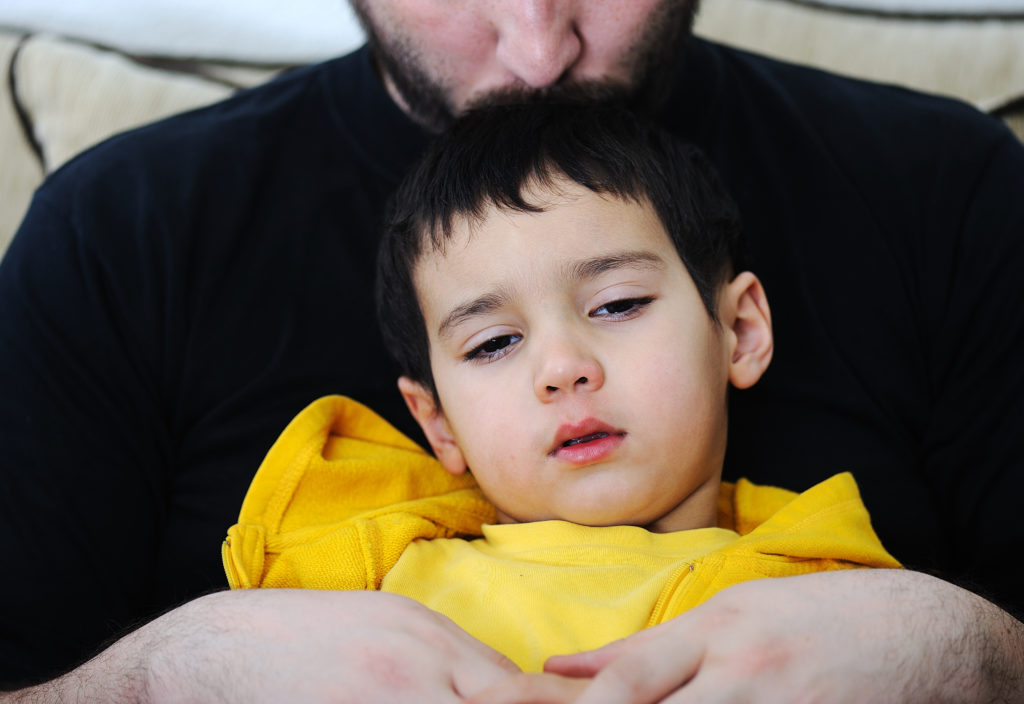Sometimes it’s hard to find the words to describe the feelings you have when a loved one enters hospice care. And, it can be even harder to find the words to tell the children in your life what is happening and what is to come. October 4th is Child Health Day and because a child’s emotional health needs care when they experience the loss of someone they love, Our Lady of Peace offers these 12 tips that we hope will help you navigate through the process:
- Be honest, straight forward, clear, and concrete with your words when speaking with your child, and make sure they are age appropriate.
- Avoid euphemisms because they are confusing to children and you don’t know how they will interpret what you’re saying.
- Reassure children that their loved one’s passing is not their fault because it’s easy for them to feel that it is.
- Be aware that kids up to six years old can think death is reversible because they don’t understand permanence.
- Note that children can personify death as a monster, so don’t be alarmed if they do.
- Let your child’s teacher know a loved one has entered hospice or has passed away.
- Pay attention to separation anxiety because it’s common when a child is grieving.
- Create a safe space for your child to talk with you and ask questions.
- Revisit grief conversations throughout your child’s development.
When a child experiences loss at an early age, their grief process will be longer. Small children aren’t able to view things from an abstract perspective, so to them, the loved one is here and then they’re gone. So, keep talking as they grow and begin to think about where that person is now.
- Be a role model for grieving and be open and honest about your feelings.
For example, “I’m feeling sad because grandpa died, so I’m going to think about all the happy times we had together.”
- Know that It’s okay to cry in front of children, especially if you know they can handle it. You know your child best, so use your discretion. Say things like, “It’s okay for me to cry. I will be alright.”
- Stay true to your faith traditions because children respond to the familiar.
Rituals like these can help children and adults through the grieving process:
- Place a jar on the counter and invite children and other family members to place a marble in it every time you think of your loved one. When it’s full, do an activity together that everyone will enjoy.
- Make a mailbox where you can place notes you’ve written to your loved one about how you are feeling and what you miss about them. You can also read them out loud and share memories.
If you’re struggling with supporting your child through grief, Our Lady of Peace can connect you with resources and supportive services designed especially for children.
